![]() — Home — Business News
— Home — Business News
Weekly Business News from Myanmar
-
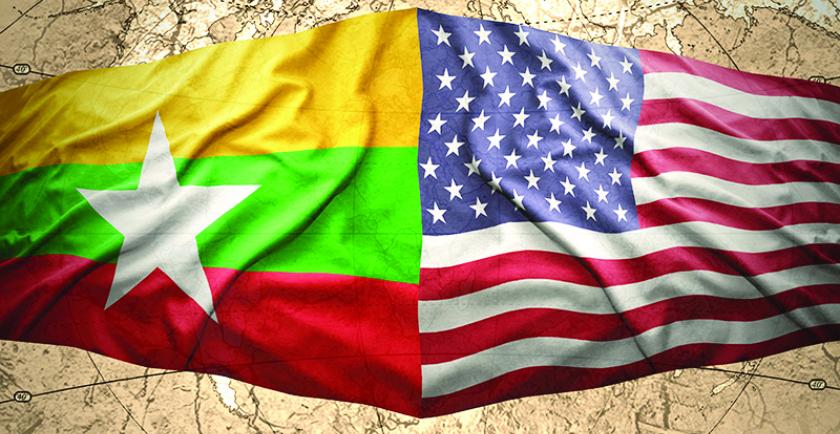
Trade between Myanmar and the United States (US) hit over USD450 million in six months of the mini budget period from April to September 2018
Trade between Myanmar and the United States totaled over 455.7 million U.S. dollars in the six-month mini-budget or transitional period from April to September this year, according to the Commerce Ministry Saturday. The country has changed its fiscal year period from original April-March to Oct.-September beginning 2018-2019, producing a six-month transitional gap. The country's export to the United States reached 293 million U.S. dollars while its import amounted to around 163 million U.S. dollars during the period. -
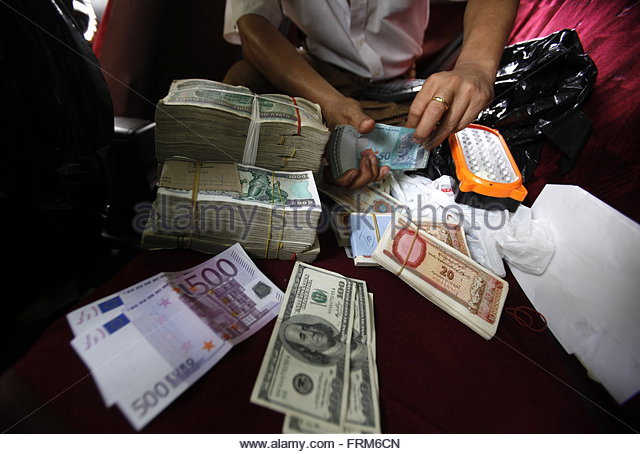
Foreign currency exchange rate dropped in the local market despite the strong value of the US dollar in the global market
The US dollar dropped to Ks1,510 in the local currency market, down Ks60 on December 4. The US dollar index in the global market hit 95.21 point in June, 95.39 point in July, 96.85 in August, 95.48 in September, 96.87 in October, 97.52 in November and around 96.61 point in December. Since June, the foreign currency exchange rate has increased significantly. On July 30, the currency exchange rate hit a record high of Ks 1,440 per dollar. The value of a US dollar increased from Ks 1,570 on August 16 to Ks1,650 on September 20. On October 11, the value of a US dollar reached Ks1,600. Since May, the global US dollar index has increased significantly. The minimum and maximum currency exchange rates in the local market are: Ks 1,345-1,407 in June, Ks 1,348-1,443 in July, Ks 1,442-1,570 in August, Ks 1,538-1,650 in September, Ks1,515-1,600 in October, Ks 1,565-1,595 in November. On December 4, the central bank’s reference rate was Ks 1,570 per dollar. -
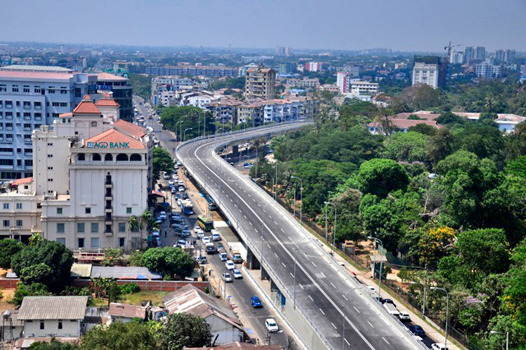
Investors from China and Hong Kong are keen to participate in the major Yangon redevelopment project or the New Yangon City Project
Investors from China and Hong Kong are keen to participate in the New Yangon City Project, said the New Yangon Development Co (NYDC) yesterday. To invest New Yangon City Project, according to New Yangon Development Company (NYDC) CEO Office said on December 5. A statement issued by the NYDC CEO’s office yesterday said Ning Jizhe, vice chair of the National Development and Reform Commission of China (NDRC) met with Yangon Regional Minister U Phyo Min Thein last month during an official visit and discussed the implementation of the New Yangon City Project. Ning reiterated China’s support for the project during the meeting. -
UMFCCI will host a forum on EU’s GSP and the possible impact on Myanmar workers and businessmen if GSP benefits are removed
Union of Myanmar Federation of Chamber of Commerce (UMFCCI) will host a forum in December about the possible impact on Myanmar workers and businessmen if the EU revokes GSP benefits on Myanmar’s export, which were granted in 2013, according to U Zaw Min Win, President of the federation, said at the meeting between vice president and local businessmen on November 17. “There are a lot of concerns that GSP might be revoked because of external various pressure on us. I heard that it (revoking GSP trade benefits) could happen in two months, six months or a year. However, we need to prepare for it,’’he added. -
Central Bank of Myanmar (CBM) allowed foreign banks to set foreign currency loan interest rate as long as those loans are in foreign currencies
The Central Bank of Myanmar (CBM) said foreign banks are free to set their own interest rate as long as those loans are in foreign currencies. Foreign banks with branches in the country are now allowed to do wholesale banking services and other financial services, according to the latest Directive issued by the CBM last month. CBM has allowed foreign bank branches to provide loans and other banking services for companies and organisations but there are still restrictions on acceptance of immovable properties such as land and building as collateral and acceptance of fixed deposit saving and paying interest in kyat. In addition to the approval, CBM also announced that it will allow foreign bank branches to expand in 2019. -
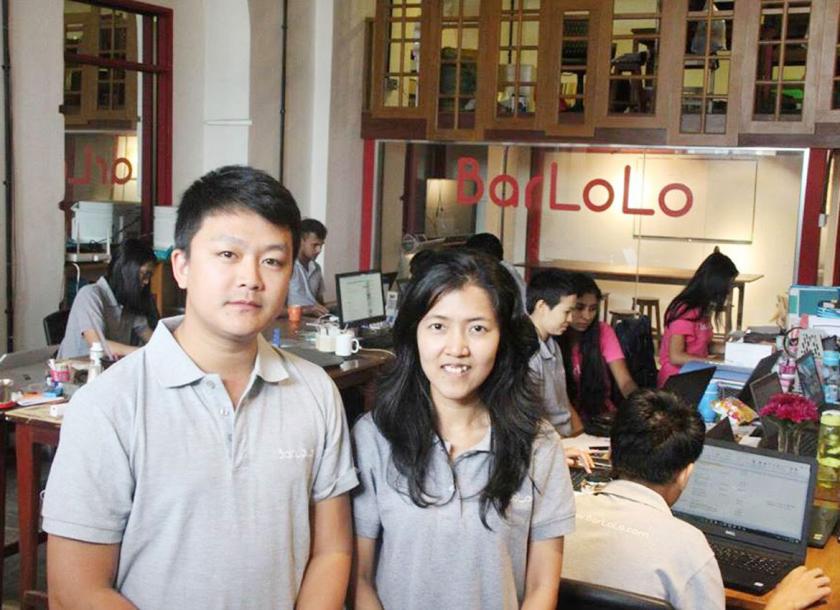
E-commerce, BarLoLo.com allowed individuals and business owners in Myanmar to buy and sell items in an easy and efficient manner to extend their reach and promote inclusive growth
Poor road infrastructure and rampant illicit trade have long prevented small businesses in Myanmar from reaching out to the wider consumer market. But an e-commerce start-up is determined to break these barriers and promote economic inclusion by providing an online platform for those sellers and merchants. In other words, it is to make e-commerce work for the many, not the few. BarLoLo.com (BarLoLo) is a Yangon-headquartered online marketplace which allows individuals and business owners in Myanmar to buy and sell items in an easy and efficient manner. In particular, it focuses on creating a platform which works for small merchants in local communities and those living in second and third tier cities. The company’s mission is about connecting merchants with buyers across the country by technology, empowering local merchants to extend their reach and promoting inclusive growth. This vision strikes a chord with the government’s latest priorities, as the commerce ministry recently committed to developing e-commerce as a means to boost trade and create jobs. -
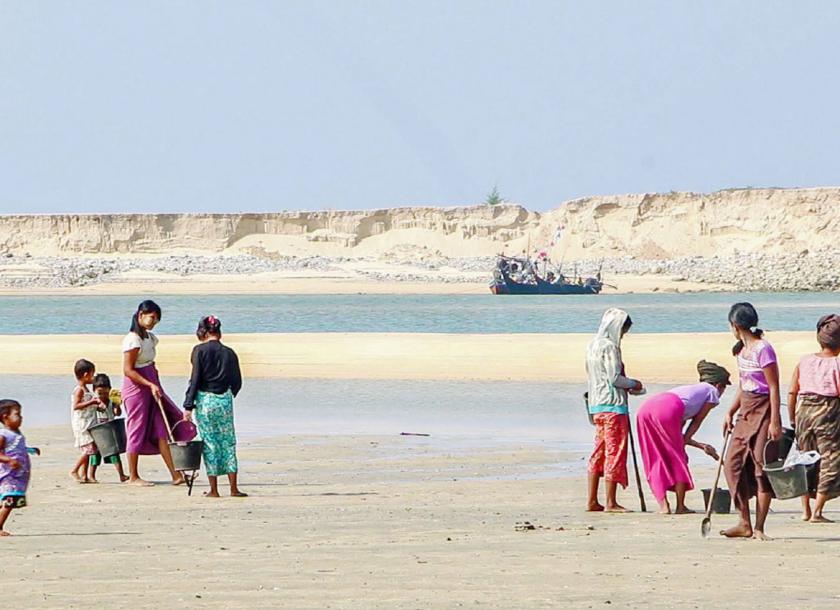
Research shows that Dawei SEZ may make local communities worse off
Research shows that the scaling up and regularisation of trade and investment through Dawei Special Economic Zone has a risk to narrow, restrict, or reduce economic spaces or practices in which women predominate, pushing women towards precarious positions in labour hierarchies. Dawei Development Association (DDA), affected community members and EarthRights International launched a new report together titled “Communities in the Balance: Local Voices and Prospects for the Dawei Special Economic Zone Project” and a new video “Women of Dawei, Myanmar” in Myanmar language and English yesterday. A decade has passed since the Myanmar and Thai governments agreed to create the Dawei Special Economic Zone (SEZ) project. The report and accompanying video aim to lay out the facts and experiences of the people affected by one of the biggest industrial development projects in the country. This report documents how villagers living in SEZ project areas understand the SEZ and what it might mean for their lives, livelihoods and families. Although research on villagers’ perspectives on the Dawei SEZ has been carried out before, no such research has taken place in the years since the project’s suspension. -
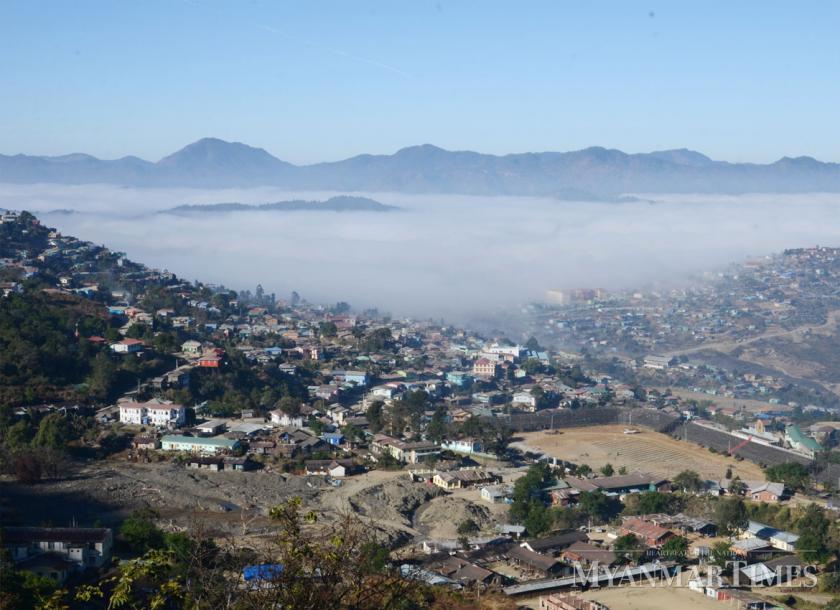
Chin State sees a little progress in drawing investment, but there are massive opportunities in tourism, energy and agribusiness sectors
Long plagued by poor road connectivity and the absence of power infrastructure, Chin has not succeeded in securing investments to develop the region thus far, but opportunities in tourism, energy and agribusiness abound. According to the “Opportunities and Challenges for Local Business Development in Chin State” report issued by the Gender and Development Institute of Myanmar (GDI), Chin has opportunities for investment which would be essential for the state’s development. Chin State, the least developed among Myanmar’s 14 states and regions, has suffered from an absolute absence of foreign direct investment (FDI). According to DICA, Chin State is the only state or region in the country with zero investment, domestic or foreign, between fiscal year 1994-95 and October 2017. Until now, only one hotel business has entered the state. FDI is absent even though all nine townships in Chin enjoy a tax exemption for up to seven years. The state qualifies for the highest tax incentives under the recently implemented Myanmar Investment Law as it is one of Myanmar’s least developed states. -
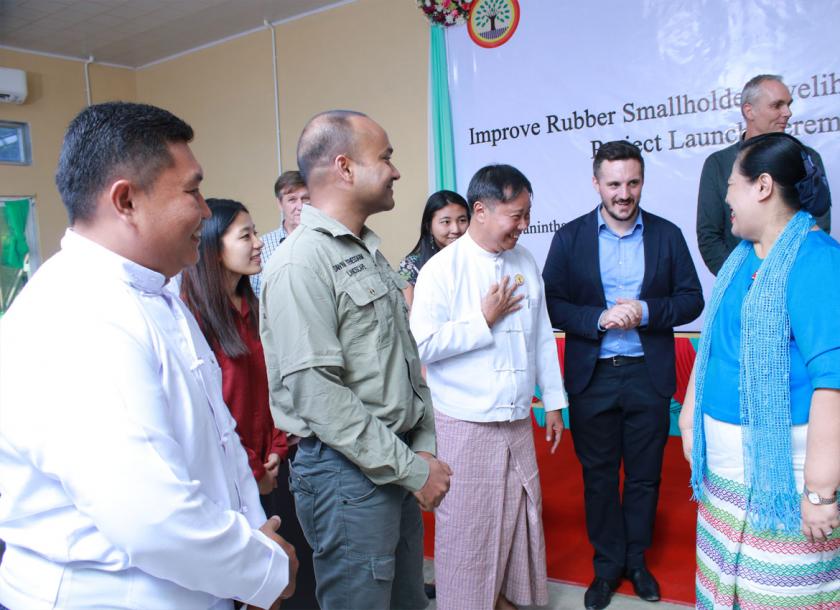
The UK Department for International Development (DFID) and the World Wide Fund for Nature (WWF) made a joint investment to catalyze change in Myanmar rubber production
The UK Department for International Development (DFID), the World Wide Fund for Nature (WWF) and Dawei Golden Land Co (DGL) have made a joint investment of over US$2.4 million to catalyse change in Myanmar’s rubber production, emphasising “green” (environmentally friendly) rubber. The project, supported by DFID-funded DaNa Facility and conservation organisation, focuses on developing sustainable rubber production in Tanintharyi Region. The scheme has a long-term goal that the region, as part of the WWF initiative, provides a replicable business model in sustainable and traceable rubber. Tom Coward, Team Leader of the Inclusive Growth and Livelihoods Unit for DFID in Myanmar, said during the launch that it is exciting to see the “significant transformative potential” of producing rubber sustainably in the country. “With Myanmar the seventh largest rubber producer in the world, this project has huge potential to improve the livelihoods of poor farmers, while also promoting the feasibility and profitability of ‘zero deforestation’ sustainable rubber,” he remarked. -
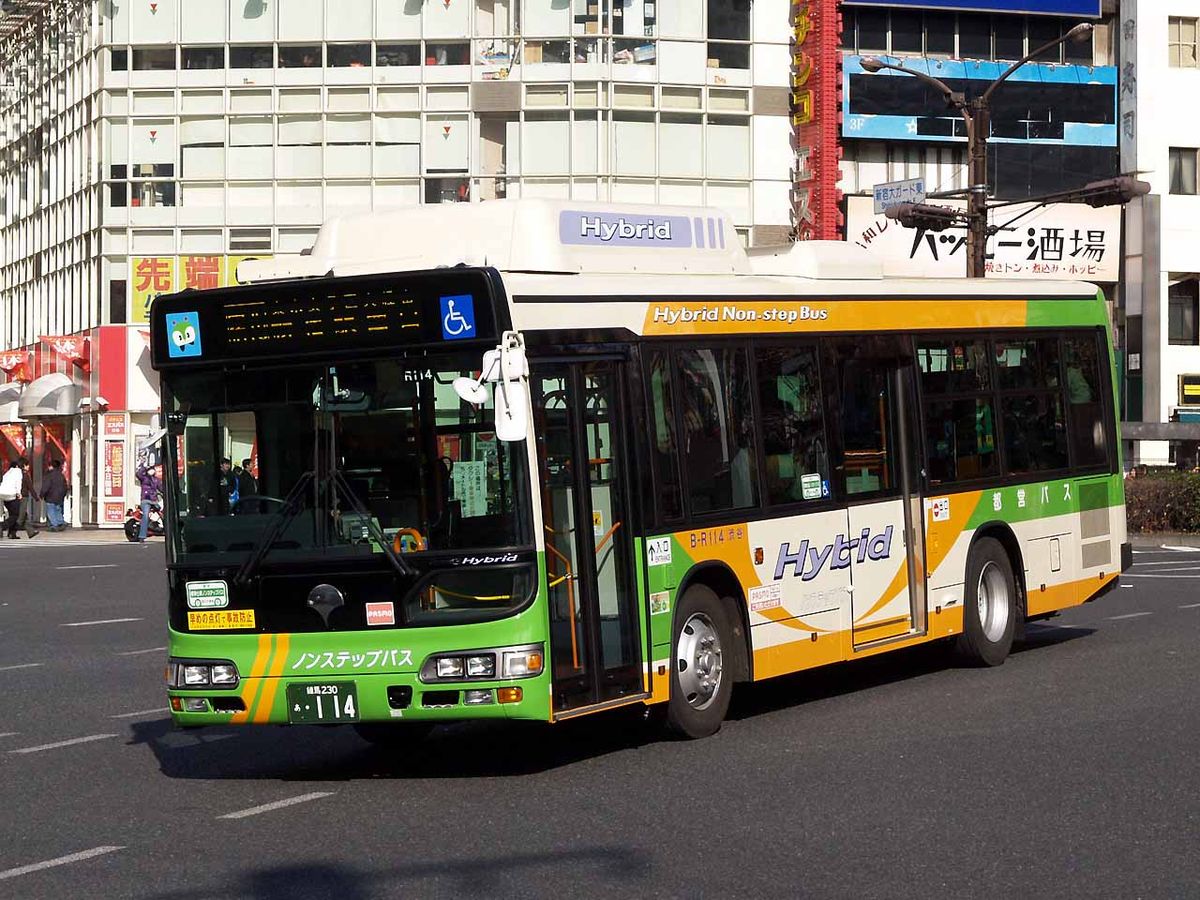
Under a partnership between No. 1 Heavy Industry Enterprise from the Ministry of Industry, Green Power Myanmar Co Ltd, and Csepel Holding Limited of Hungary, Modulo electric buses will be manufactured in Myanmar
Modulo electric buses will be manufactured locally under a partnership between No 1 Heavy Industry Enterprise from the Ministry of Industry, Green Power Myanmar Co Ltd, and Csepel Holding Limited of Hungary. The Myanmar Times interviewed U Tin Maung Kyin, CEO of Green Power Myanmar Co Ltd regarding the implementation plans. Production is planned to begin in mid-2019 and the vehicles will be exported to Sri Lanka, India and Singapore according to the contracts, he said. The total expected number of export will be more than 7000 and with 300-500 buses made for domestic use. The CEO went on to explain that the reason for cooperating with Hungary is due to their advanced technology and being the main manufacturer and exporter of high-standard trains and buses to Germany.
Business News
Copyright © 2014 Business Information Center All Rights Reserved.







